The long-awaited film adaptation of the beloved Patricia Grace novel Cousins is now out on Netflix and in celebration of this extraordinary film, Emma Clifton talks to lead actor Ana Scotney about the universal nature of the film’s themes and how familial love can help heal the intergenerational effects of trauma.
Ana Scotney (Ngāi Tūhoe, Ngāti Tāwhaki Ki Ngaputahi) is beaming, via Zoom, from her art-filled van, plonked by the Wellington Harbour, her hair still damp from her morning swim. If you, like me, were already impressed by someone swimming in the last gasps of summer, in a city not known for a warm climate, then you’ll also be impressed to know that Ana is actually part of the ‘Washing Machines’, a legendary Wellington swimming club that swims every single day throughout the year. Although Ana is quick to point out that she is mostly “an inactive and dormant member”; she first found out about the group when she saw them in the middle of winter in 2018, happily peeling off their clothes and diving into the frigid sea and decided to find out more about them. It is immediately indicative of the kind of person the 26-year-old is; she is not afraid of a physical challenge. In fact, just before her chat with Capsule, she and her boyfriend had just finished walking around 600km of Te Wai Pounamu, the South Island. This isn’t her first mammoth walk, she also spent seven weeks walking the length of Israel on her own when she was just 20.
“I feel like somewhere inside me is this wannabe jock alter ego or something,” she laughs. “I do really love endurance things… it just makes me feel really happy and peaceful to spend so much time outside; to be in the ocean swimming or to be moving slowly through the country. Maybe it is some sort of ‘poetical’ thing to get the creative sparks igniting but I think it’s just more to do with the fact that there’s some nerdy thing inside me that’s soothed by spending a lot of time outdoors when I can.”
Those creative sparks have been firing on all cylinders for a long time. Ana’s bio is as varied and comprehensive as you would imagine for someone three times her age, let alone someone in their mid-twenties. An actor, filmmaker, musician and writer, Ana is a multi-disciplinary artist who has been killing it both in Aotearoa and overseas for a long time. Her credits run from Shortland Street to Wellington Paranormal, The Educators and The Breaker Upperers, to creating a solo play called The Contours of Heaven with fellow theatre maker Puti Landcaster, which toured around New Zealand and also took her to New York in early 2020. She is a superstar talent and her latest role takes her as far away from improv comedy as you can imagine – playing one of the lead characters in the Cousins, the film adaptation of the famous Patricia Grace novel, which comes out in cinemas today.
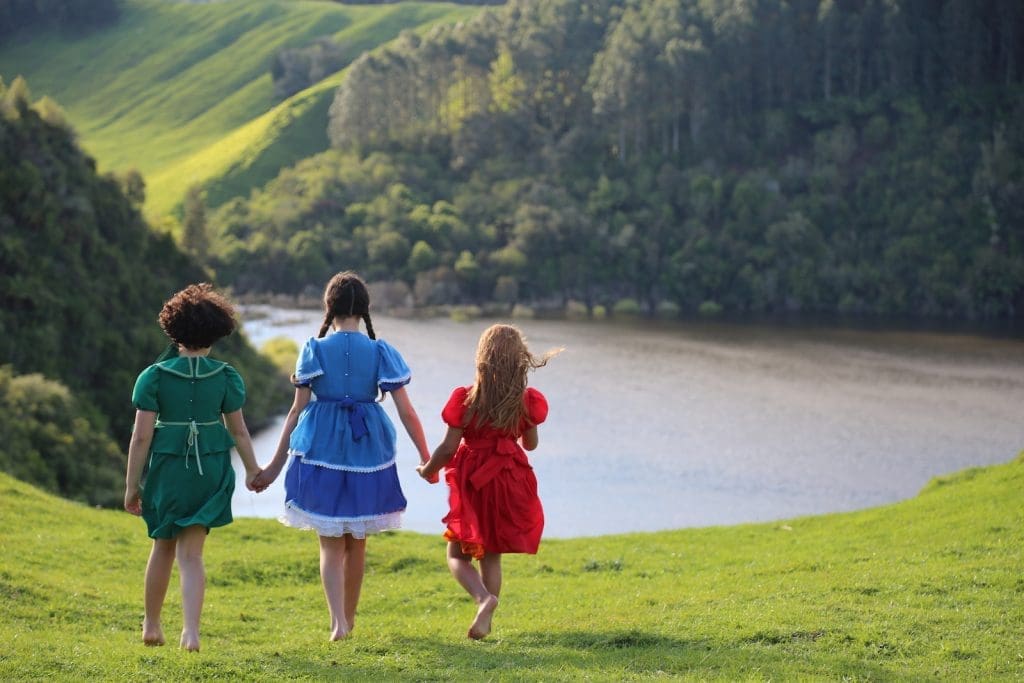
The film is extraordinary – easily one of the best movies I’ve seen in recent years, a story that sums up the unbreakable bonds of whānau and wāhine while also not shying away from the systemic racism that cost entire generations both their freedom and the ability to take pride in their culture. In a short version, Cousins tells the stories of three cousins: Missy, Mata and Makareta at three different stages of their lives: kids, young adults and grown women (check out our interview with Rachel House, who plays the grown Missy).
Set in the 1960s, the lives of these three wāhine cover the complex pressures of family expectations set against a modern world that seeks to disempower Māori at every opportunity. It’s Mata’s life that gets affected by this the most, after she is sent to an orphanage and has her name and identity taken from her; a move that costs her not only her whakapapa but eventually her sanity. Her cousins, Missy and Makareta, never give up on their pledge to find her and return her to her whānau and the fact that I have cried three times while writing this paragraph because of how strongly the movie stuck with me should be a sign of how moving it is. Ana plays the young adult version of Mata (see all three Matas below) and she is phenomenal in a role that breaks your heart over and over again.
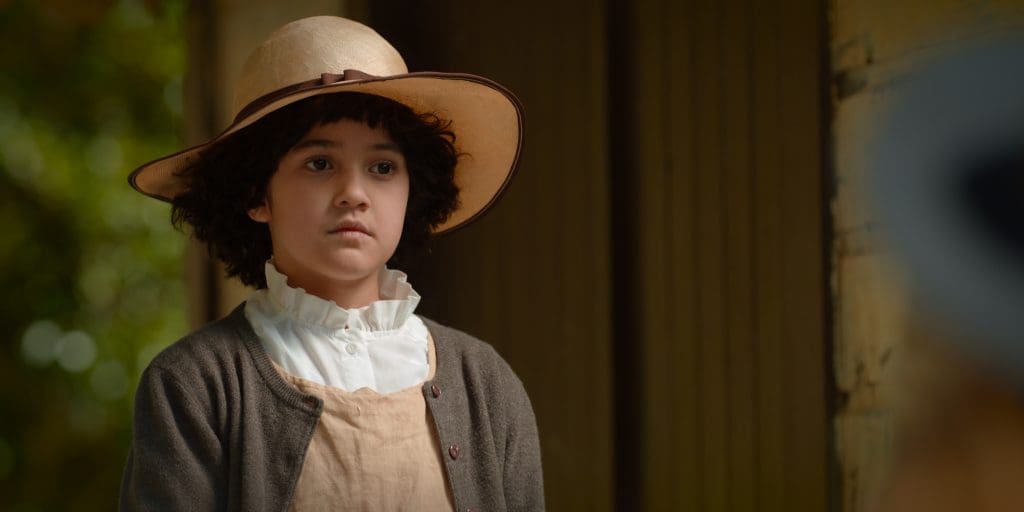

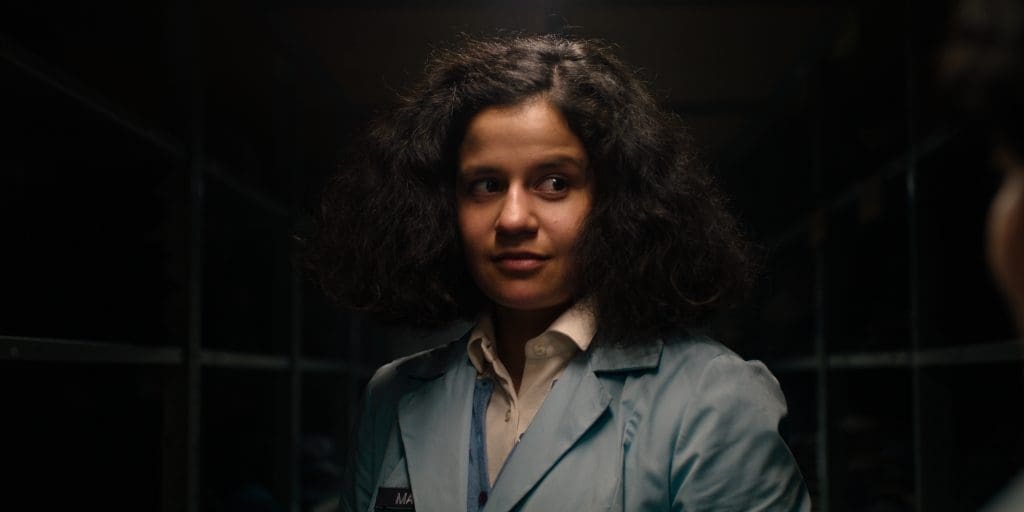

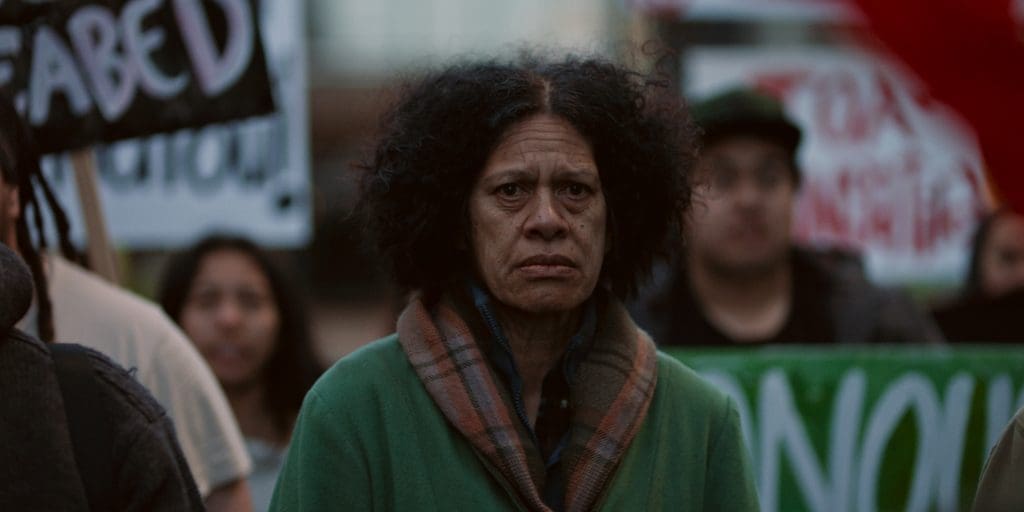

Ana had grown up reading Patricia Grace’s books but first read Cousins in preparation for the movie. The themes of the book, she says, are the lived truths of so many people. “Whether it’s being part of the indigenous diaspora or being raised outside of a tribal nation, or being a speaker of Te Reo Māori and then, through my life, that falling away, as is the case for so many people,” she says. “I think it’s universal for people who are tangata whenua, who are Pasifika, who are Pākehā – anyone who’s had to migrate or been forced to migrate.”
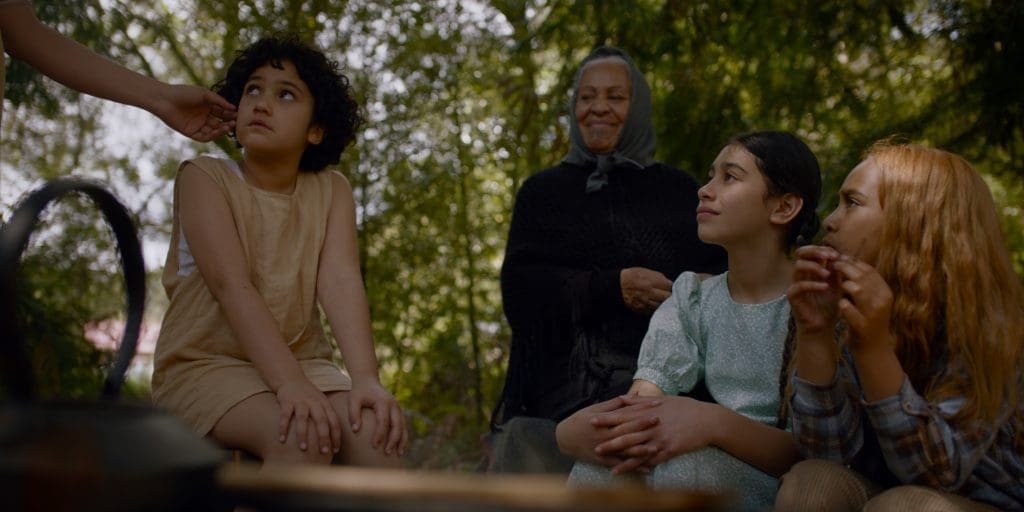

“That’s what resonated with me; how, ultimately – not to sound really corny or clichéd – but how powerful that familial love and that inter-generational love is, that comes from our great grandmothers or through the women in our family. It’s ultimately the healing property of the story.”
In Ana’s own whakapapa, there are stories of great survival on both sides of her family. “One of my grandmother’s was Jewish German who came here when she was 10, in 1934, because my great-grandmother, Heidi, had the foresight to realise that the Nazi party was really about to kick off and most of our family who remained in Europe were sent to concentration camps and killed. But because Heidi had the matauranga to call what was about to happen, I’m alive. And same with my whānau from Ngāi Tūhoe, realising that things were about to get really dicey post Treaty and the scorched earth policy and what had happened to our people historically. I feel like there’s so much to be thankful for and this film does a great job in giving air time to the enormous effort that comes with maintaining your culture, maintaining your identity and maintaining your connection to whānau, to whakapapa,” Ana says, then laughs. “So that’s my very earnest download about what Patricia Grace’s story – and, as a byproduct, what being part of the film – has enabled me to reflect on.”
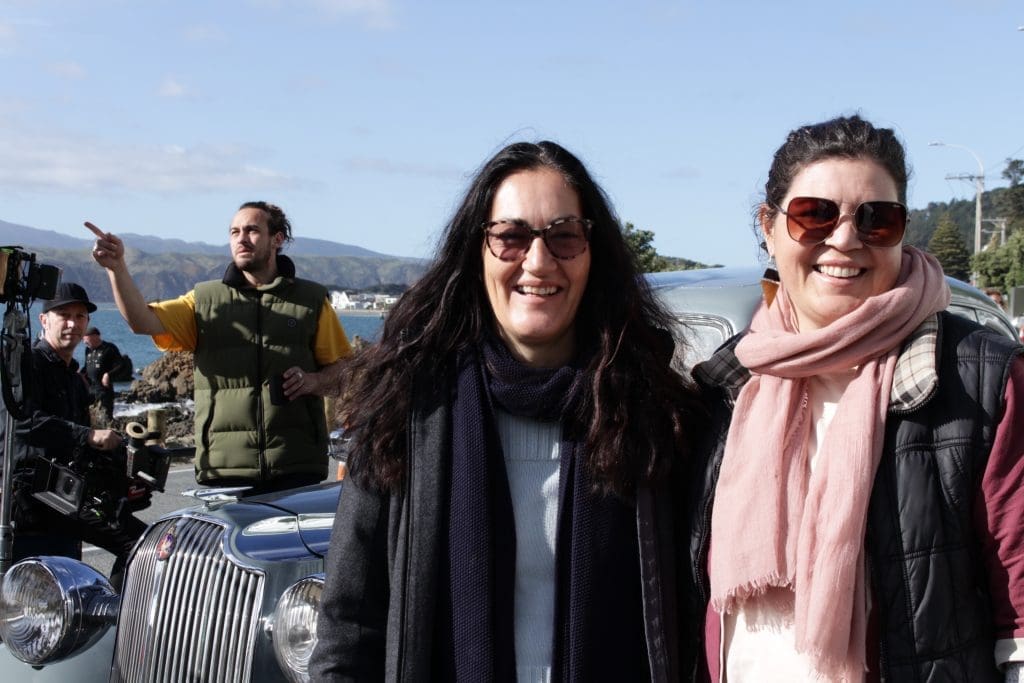

The idea of that familial love and succession also plays strongly behind-the-scenes of the film, Ana says. “There are many pioneers before us who have put in the groundwork for this moment; like Merata Mita, an absolute boss filmmaker, being the first Māori woman to be writing and directing a feature film with her children. She had the rights to Cousins originally and then she passed away, and now the co-directorship [of Ainsley Gardiner and Briar Grace-Smith] is the first time that Māori women have directed a feature film.” Both women were also part of the 2017 anthology feature Waru, where eight different women each directed a second of the movie.
The idea of co-directorship is also a perfect example in how indigenous views of power – that it is shared – differs so strongly from the western constructs of power. When I mention that Cousins is coming out at an interesting time in the global consciousness, where there seems to be an increased interest in non-western stories, Ana thinks about it for a second and then says, “There are so many layers to that. We’re at a point, both here in Aotearoa and globally, where the systems have failed us and I think people are interested in opening up – well, people in the mainstream, I should say – are interested in opening up to the realization that there are other ways of approaching all sorts of things, be it political frameworks, pedagogies, education, the significance of learning the history of belonging here in Aotearoa, ways of engaging with the climate and our ecology. That then creates an openness to learn a little bit more about cultures or communities that have been a little bit shelved. I also think that people want to have more stories about healing, or that focus on what’s been lost and then found again, in the wake of Covid-19 and this funny, disillusioning time that we’re in.”
“That’s what the film addresses as well, being multi-generational, as well as giving our stories air time and being watched by people who, maybe otherwise, haven’t endeavored to find narratives like Cousins.”
Whether it’s in her album Forcefield or in her one-woman play, The Contours of Heaven, Ana says the theme of belonging has been a major focus of her work for a long time. But, she says, she can feel a shift; that maybe she’s started putting that theme to rest. “Maybe it’s the” – she puts on a joking voice – “coming-of-age, mid-twenties energy of settling into my skin or maybe it’s an identity that is a little bit more fortified. I’ve always felt like an outsider but I feel that so many people experience that. For me, it was not really knowing where I fit or where I place myself…. In hindsight, maybe it was a call-out to build friendships or connections with people who have that likeness, that sense of awarua – being made up of multiple cultural ribbons.”
Main photo credit Rebecca McMillan.

